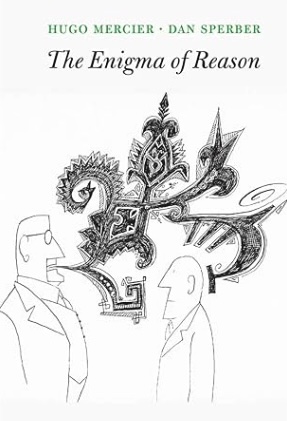Book review of The Enigma Of Reason by Hugo Mercies and Dan Sperber

Overview
The Enigma of Reason by Hugo Mercier and Dan Sperber offers a fascinating dive into the cognitive science behind human reasoning. The authors propose a bold new perspective on reason, challenging traditional views that often depict it as a largely flawed mechanism. Instead, Mercier and Sperber argue that reason has an evolutionary function tailored specifically for collaborative and communicative purposes
Themes
| Enigma | Description |
|---|---|
| The Evolution of Reason | Why did reasoning evolve if it is often biased and flawed? |
| Reason’s Social Function | How does reason function in social contexts versus individual use? |
| The Interface Theory | How do interface problems affect the utility and outcomes of reasoning? |
| The Bias and Heuristics | Why are biases and heuristics prevalent in individual reasoning? |
| The Argumentative Theory | How does the argumentative function of reason enhance group dynamics? |
Counterpoints
One of the strengths of The Enigma of Reason is its detailed exploration of the ways in which reasoning fails when used solitarily but excels in social contexts. The authors provide ample evidence and compelling arguments to support their claims, making the book a significant contribution to our understanding of human cognition.
However, the book is not without its detractors who may find some of the arguments too speculative or not sufficiently grounded in empirical research. In particular, the book fails to provide a clear explanation for why the evolution of reasoning is so complex and why it is so difficult to use reasoning in social contexts. The authors’ proposed solution is to rethink the nature of reasoning itself, which is a topic that is well-explored in the book but not discussed in depth.
Conclusion
Overall, The Enigma of Reason is a thought-provoking book that challenges old paradigms and provides fresh insights into the nature of human thought.